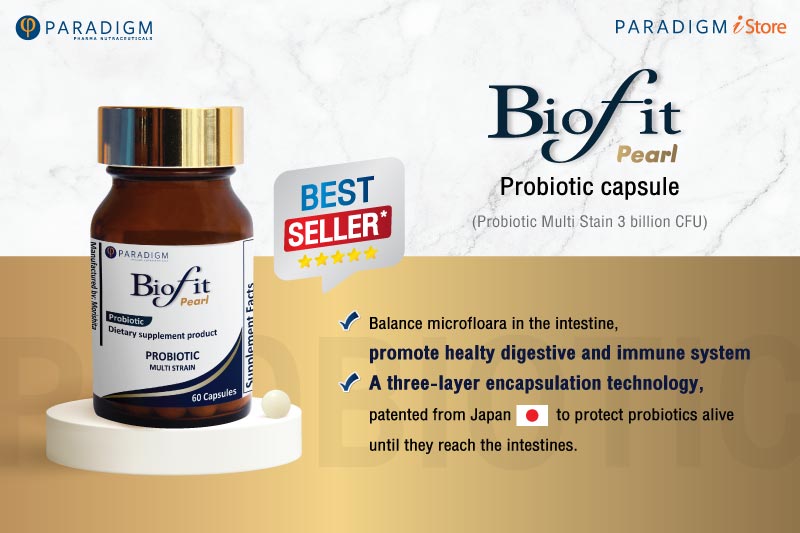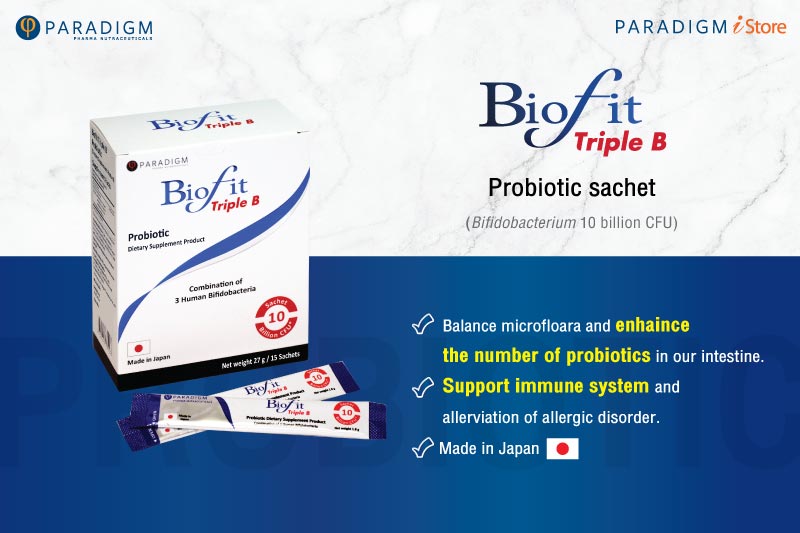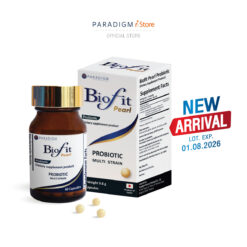Biofit Triple B, a popular probiotic brand, made in Japan.
Which probiotic brand is good?
Which one is suitable for us? How beneficial are they? What are the benefits? These are often basic questions frequently asked by those just starting to explore probiotic supplements. So, before you decide which brand is best for you, let’s delve deeper into probiotic, understand them better, and consider what suits you best.
What are probiotic?
Probiotics are beneficial living microorganisms, particularly for your digestive system. These probiotic bacteria can help balance the good and bad bacteria in your gut, support immune function, and reduce inflammation. There are many strains of probiotics, each with its unique benefits.
The human gut is home to billions of bacteria, known as the gut microbiota, which play a crucial role in your health. However, if the balance of bacteria in your body is disrupted, it can lead to overgrowth of harmful bacteria, inflammation, or gastrointestinal issues. This is where probiotics, or beneficial bacteria, come in. Probiotics are well-researched to be beneficial for your digestive system. They can help restore the balance of good and bad bacteria in the gut by increasing the population of beneficial bacteria. This, in turn, can promote overall well-being and prevent illness.
Probiotic help with what? How are they essential for the body?
Probiotics are beneficial bacteria for the body, with a notable role in balancing the digestive system or nurturing intestinal health. Each group of people receiving probiotics may benefit differently:
- Probiotic help balance the digestive system, reducing symptoms of constipation, diarrhea, and related issues.
- They aid in preventing and treating diarrhea, reducing the occurrence of food allergies, and promoting better growth.
- Probiotic assist in preventing and treating infections in the female reproductive tract, reducing the risk of intrauterine diseases.
- They improve digestive function in the elderly, alleviate constipation, and strengthen the immune system.
- Probiotic reduce inflammation in the respiratory system and prevent illnesses related to colds and allergies.
How much probiotic are necessary for the body?
According to the National Institutes of Health, our bodies require 1 billion to 10 billion CFU. CFU is a unit used to measure the quantity of bacteria in supplements and foods. However, this can vary based on individual age and overall health.
The factors that contribute to a decrease in probiotics
- We are consuming too little fiber in the diet.
- We are consuming excessive amounts of high-fat foods.
- We are consuming high amounts of sugar frequently and excessively.
- Alcohol consumption.
- Smoking.
- It is increasing age.
- Stress.
Where can probiotic be obtained from?
1. Natural Food Sources of Probiotics:
- Dairy products like yogurt and various types of fermented milk are available in the market, which indicates the quantity of bacteria present.
- Fermented foods such as kimchi, pickles, and miso.
2. Probiotic Supplements:
With advancements in health science and technology, popular sources of high-quality probiotics often come from various probiotic supplements. Paradigm Pharma itself offers a range of probiotic supplements that we’d like to recommend, including:
Biofit Pearl: Probiotic capsules with a pearl-like shape, containing 3 strains of probiotics totaling 3 billion CFU per capsule. Imported from Japan and manufactured using encapsulation technology patented in Japan to protect the probiotics until they reach the intestines.
Biofit Triple B: Probiotic and prebiotic sachets containing Bifidobacterium probiotic with 10 billion CFU per sachet and Fructo-Oligosaccharide as prebiotic. Imported from Japan, with a yogurt flavor, easy to consume in various ways such as directly in the mouth followed by water, or mixed with food or beverages.
Reference:
Nonthavej Hospital
Samitivejchinatown Hospital











